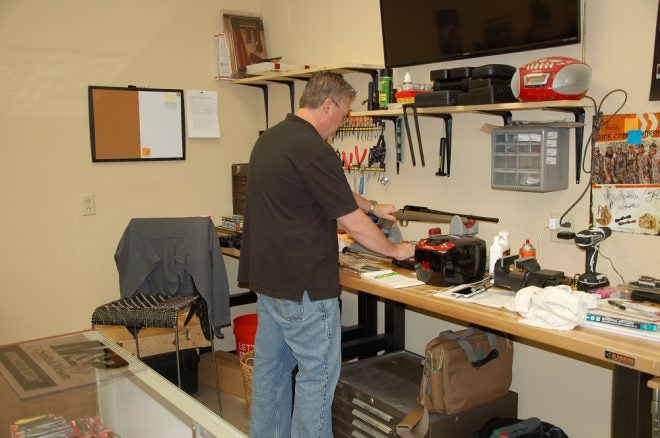Before Learning New Skills, Assess Yourself
Dr. John Woods 11.01.16

To a degree I pride myself in having many self-taught or parent-taught skills to be able to fix certain things. When I was a kid, my mom owned an auto parts store where I learned many mechanical things about car engines and such. My dad was a WWII B-24 pilot and owned his own flying business until he was 72 years old. Maintaining crop dusting airplanes from Stearmans to more modern Thrush aircraft taught me a lot about mechanical systems, tools, and fixing things. As we joked, sometimes it took a little bailing wire and duct tape.
So, while I may be pretty handy with a set of wrenches and some screwdrivers, there are many things I shy away from working on. Primary on that list are electrical items. I can screw in a new lightbulb and even change out a wall switch, but don’t ask me to install a ceiling fan or a fuse box. I can do some plumbing, but generally choose not to most of the time.
I am a poor carpenter, but have repaired sheetrock, shored up aging wooden stairs at the bug out camp, and smaller jobs. I can pound a nail, but I do bend a few. I couldn’t build a suitable structure if my life depended on it. Something “square” is a guy that just does not fit in. I can assemble things if the directions were not written by a Chinese engineer.
There are other things, machines, equipment, and such that I know better than to touch. On that list are chainsaws, front end loaders, most anything with a big, rotating blade(s), and some electrical saws. I am not particularly well versed in lashing chains, cables, or towing anything. My own truck does not have a hitch for good reason.
So, why all this about my own skill base or lack thereof? It is to admonish all preppers to assess their own skill levels about things mechanical, electrical, anything that runs on gasoline, repair of stuff, use of general tools, building skills, changing out of parts, general maintenance of mechanical systems, troubleshooting, and having the ingenuity to fabricate anything of necessity that might come along.
Why? Because during a wholesale SHTF or natural disaster, you probably will in all likelihood be on your own. I saw this during Katrina. If you broke down on the side of the road, someone might stop to help you (or rob you), but it is not something I would count on. People were left on roofs for days after the storm passed for the sheer lack of self-preservation skills to save themselves. They were waiting on “Uncle” to come get them or bring them a bottle of water. Sometimes Uncle did not show up until it was too late. Best learn to fend for yourself.
Days and weeks after Katrina, people were up on roofs tacking down blue tarps to try to save the houses from further damage. Some of them fell off the roof and were hurt. Many of them had no tools or supplies. Lucky for them many church groups came in to take over to help these people out. The homeowners had no skills, no tools, no supplies, and virtually no will. I was told by some of the church people that the property owners would just stand around telling them what to do and what was to be fixed without so much as lifting a finger themselves. Expect this after any SHTF event.
So, whether the prepper plan you are devising now includes a bug out or a bug in, then prepare now to either construct something new or maintain what you have already. That will require proper tools, supplies, and some skills. If something breaks, you will have to fix it. If a problem or issue develops, your own ingenuity will have to create the solution and execute the fix.
If you fall into this unprepared category of preppers, then start with the basics. Study and learn, then practice. Take an adult education skill class at the local vocational school or community college. They offer a host of classes in carpentry, electrical, auto repair, and such geared for the average person.
Some of the survival oriented shows on television do offer practical skills. There are a couple good monthly survival magazines available that illustrate many practical prepping skills, step-by-step instructions, and honest evaluations of products and gear. Study these and keep a library dedicated to such information.
As we have said so many times, prepping and survival is an on-going process. You can never stop learning or practicing. Overcoming hardship and turmoil was never going to be easy. Preparation, training, skills development, and practice go a long way toward creating that intuitive ingenuity you will need to survive.